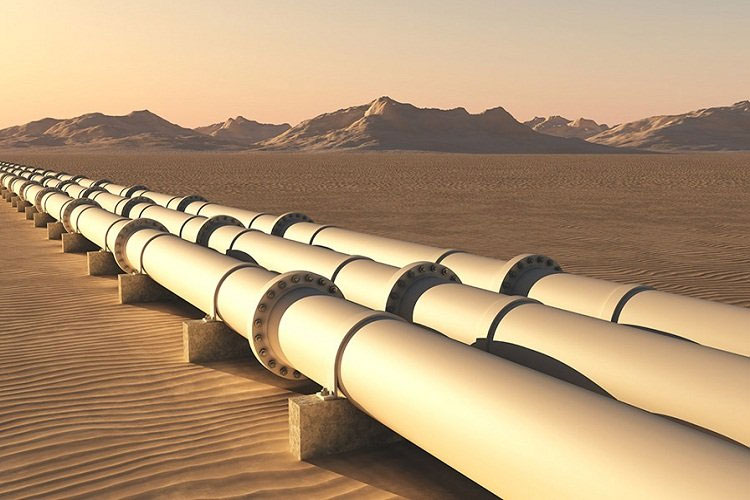New President In Nigeria Scatters Papers On Moribund Nigerian-Moroccan Gas Pipeline

Events have accelerated dramatically since the end of the term of the Nigerian president, Muhammadu Buhari, and his successor, Bola Ahmed Tinubu, the winner of the last presidential elections, have cast a shadow over the Moroccan-Nigerian gas pipeline project, which seems to have reached its inevitable end after a fabricated cover-up by the media of the Makhzen regime. The Makhzen is desperately trying to divert the attention of the Moroccan people from Algeria’s decision to stop pumping gas to Morocco through the European Maghreb gas pipeline.
In the space of less than a week, two remarkable indicators have emerged of the end of the Makhzen regime’s dream project, the Moroccan-Nigerian gas pipeline. According to the project plan, the gas pipeline project with Morocco must be approved by all 14 countries through which it passes.
As for the second indicator, it is presented in the report prepared by the American television channel “Al-Hurra”, which states that the issue of Western Sahara is an obstacle to the success of the gas pipeline project between Nigeria and Morocco, based on the consideration that the United Nations considers Western Sahara to be a disputed territory. It falls under the heading of decolonization.
Despite the fact that the project has been going on for years, these two indicators only appeared after the election of a new president of Nigeria, after two consecutive terms of the previous president, Muhammadu Buhari, which indicates the existence of new developments at the level of the Nigerian interior, because the transfer of power from one president to another in a country, even if they belong to the same party, means that many changes will take place in the running of the state, since each president has his own point of view on how to run the wheels of the state during his term of office.
When the idea of the Moroccan-Nigerian gas pipeline project was launched, it was planned to pass through at least 14 West African countries, and the Western Sahara issue is much earlier, so why did it wait until the election of a new president for Nigeria to raise these two sensitive issues? There is no doubt. A lot of changes are taking place under the radar in the country that has the largest economy in Africa.
In the light of these indicators, has Nigeria decided to turn the page on the Moroccan-Nigerian gas pipeline, which has been the subject of much controversy since Algeria decided to stop work on the European-Maghreb gas pipeline, which runs through Moroccan territory to Spain?
This is a question that has been raised since the new Nigerian president, Bola Ahmed Tinubu, took office.
However, while the Moroccan-Nigerian gas pipeline is still awaiting the approval of the western countries of the brown continent before talking about the study and completion works, the Algerian-Nigerian gas pipeline, which crosses the state of Niger, is cutting its last stages before reaching the European mainland through Algerian soil, leaving nothing but the section. It crosses the state of Niger and Algeria has undertaken to sponsor it, while the Moroccan-Nigerian pipeline is still in the virtual realm, which makes it more of a media phenomenon than a real project.
Today’s developments confirm what the European Union’s High Commissioner for Foreign Affairs and Security Policy, Josep Borrell, said during his visit to Morocco at the beginning of the year, when he said that the priority for the Europeans was to “give priority to investing in renewable energy and supporting viable projects”, noting that the project will not be completed before 2046, which makes the current need for it pointless.
The European Union’s unwillingness to finance the Moroccan project spells the inevitable end of the project, especially in view of its financial cover, which is around 25 billion dollars, and the weak financial resources of the Makhzen regime, which are not even sufficient to feed the Moroccan people, The opposite of the Algerian-Nigerian gas pipeline, which is welcomed by Europe, was demonstrated by the visit to Lagos last summer of a delegation led by Matthew Baldwin, Deputy Director-General of the European Commission’s Energy Directorate.




